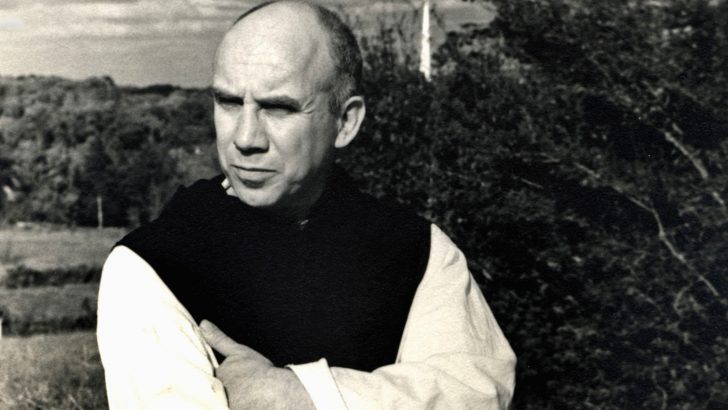Peace Smiles: Rediscovering Thomas Merton
by Bishop Fintan Monahan (Veritas Publications, €9.99/£9.12)
Anthony Redmond
It is very clear that Bishop Fintan Monaghan is an ardent admirer and devotee of Thomas Merton and his writings. Dr Monahan, of course, is Bishop of Killaloe, based in Ennis, Co. Clare, and could be said to speak from the heart of Ireland.
Merton was not alone one of the truly great spiritual guides of the 20th century but he was also an amazing letter writer, poet, monk and contemplative. He also loved jazz. His extraordinary autobiography, The Seven Storey Mountain (also known as Elected Silence) enjoyed huge success in the US. Graham Green wrote: “It is a rare pleasure to read an autobiography with a pattern and meaning valid for all of us. It is a book one reads with a pencil so as to make it one’s own.” Merton died in 1968 at the age of 53.
Cambridge
Merton lived a somewhat wayward life as a young student in Cambridge University. He entered fully into the dissolute atmosphere of the student life he encountered there. Indeed, at the age of 18 he fathered a child, a boy, with a girlfriend and this resulted in him being removed from Cambridge and his godfather sent him back to America. Little is known about the woman and the child and it is believed that both died during the London Blitz.
As time went by Merton changed his ways and, like St Augustine, he turned to God. He entered the Trappist monastery of Gethsemane in Kentucky. Through his writing he became internationally famous. He was a superb letter writer. He wrote letters to Pope John XXlll, Coretta Scott King (after the murder of her husband) to James Baldwin, Boris Pasternak, Jacqueline Kennedy and to all who wrote to him whom he didn’t know. There is something completely modern and contemporary about Merton and he comes across in his letters as very human and in touch with people and their problems.
Bishop Monahan Writes: “The appeal of Merton’s work to our modern world is that there is a common thread throughout. Starting with The Seven Story Mountain, and throughout his vast literary output, he relates in a down-to-earth manner to the spiritual and existential struggles of the modern woman and man. I believe that modern day readers will be assisted to discern the will of God for them on an individual basis. Merton speaks to the very ordinariness of all our lives. It is said often that Merton’s genius lies in the ‘extraordinary ordinariness’ of the way he relates to us.”
Thomas Merton was deeply interested in various forms of mysticism and it was while on a retreat in Bangkok that he was accidentally electrocuted in his room. Bishop Monahan writes: “The closing line of The Seven Story Mountain ends by admonishing the reader to ‘learn to know the Christ of the burnt men’. It is ironic that Merton’s death in 1968 was caused by accidental electrocution.”
He adds, “Despite its flaws, I have no hesitation in recommending The Seven Storey Mountain if one were to read just one Merton book. I still remember being enthused and enthralled by it as a young seminarian. It is a book of a lifetime, and yet Merton went on to write even better works.”
I find Bishop Monahan’s enthusiasm for Merton contagious and encouraging. I have watched recordings of a few of Thomas Merton’s talks to his students and he has a relaxed down-to-earth and modern manner of speaking. One characteristic or particular mannerism of his that struck me was his use of the word “See” almost after every few sentences.
Quizzical
Bishop Monahan also comments on this. He writes: “Every now and then he would punctuate his speech in a quizzical tone with the word ‘see’. There I think lies the key to understanding Merton. That speech mannerism was gently provocative and persistently spoken with an eager hope that the listeners would be able to understand what he was imparting to them. I think it also answers my two questions about his past influence and his relevance today: Merton was a ‘seer’. I use the word ‘seer’ not in any wizardly sense but rather in the sense of his being one who took time to see into the depths of his own being and in the sense that his thinking and written work were visionary and continue to remain so to this day.”
I like the fact that Thomas Merton, a bit like Henri Nouwen, was very human and easy to identify with. There was nothing of the plaster saint about him and that’s what makes him very real to me.


 Thomas Merton
Thomas Merton 